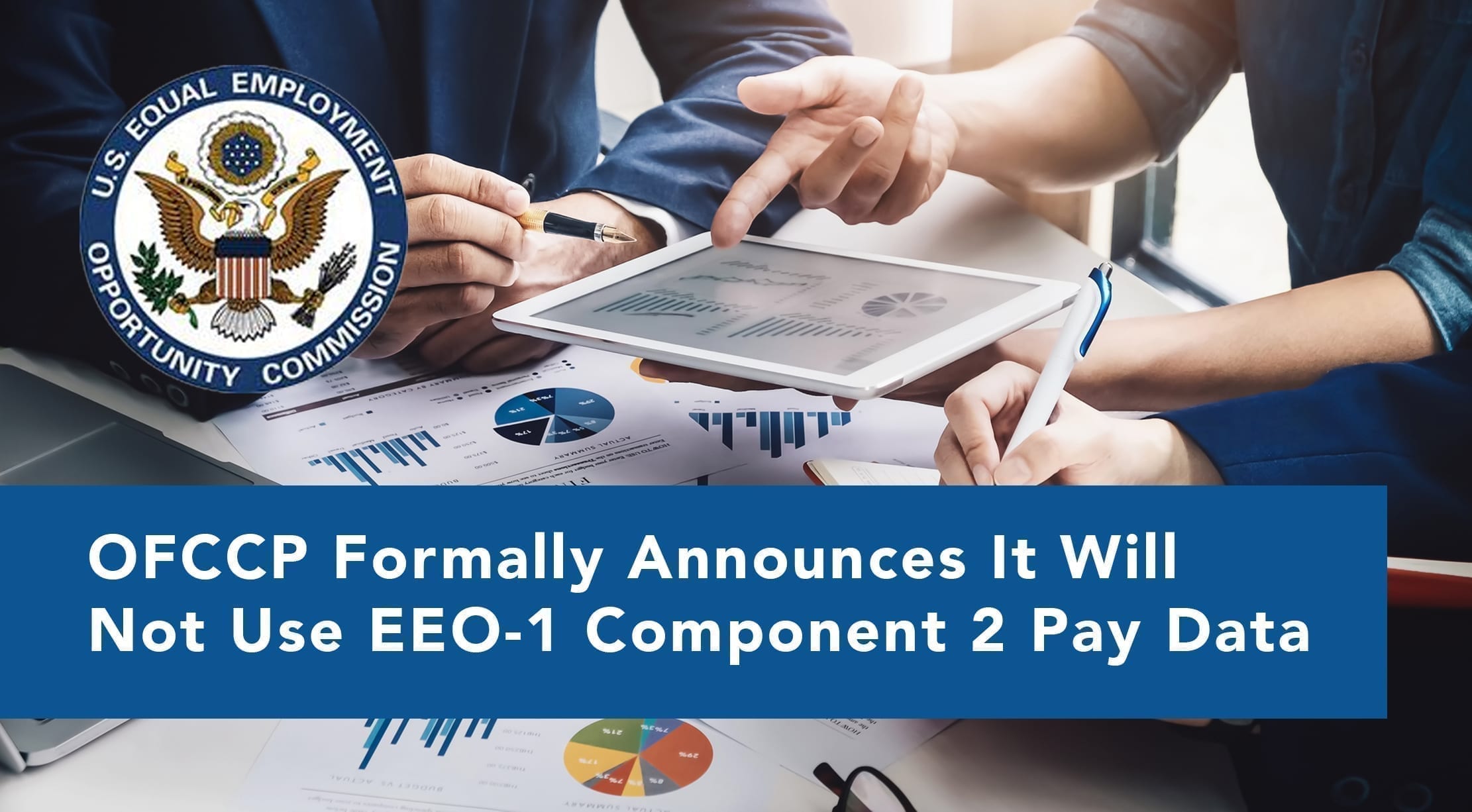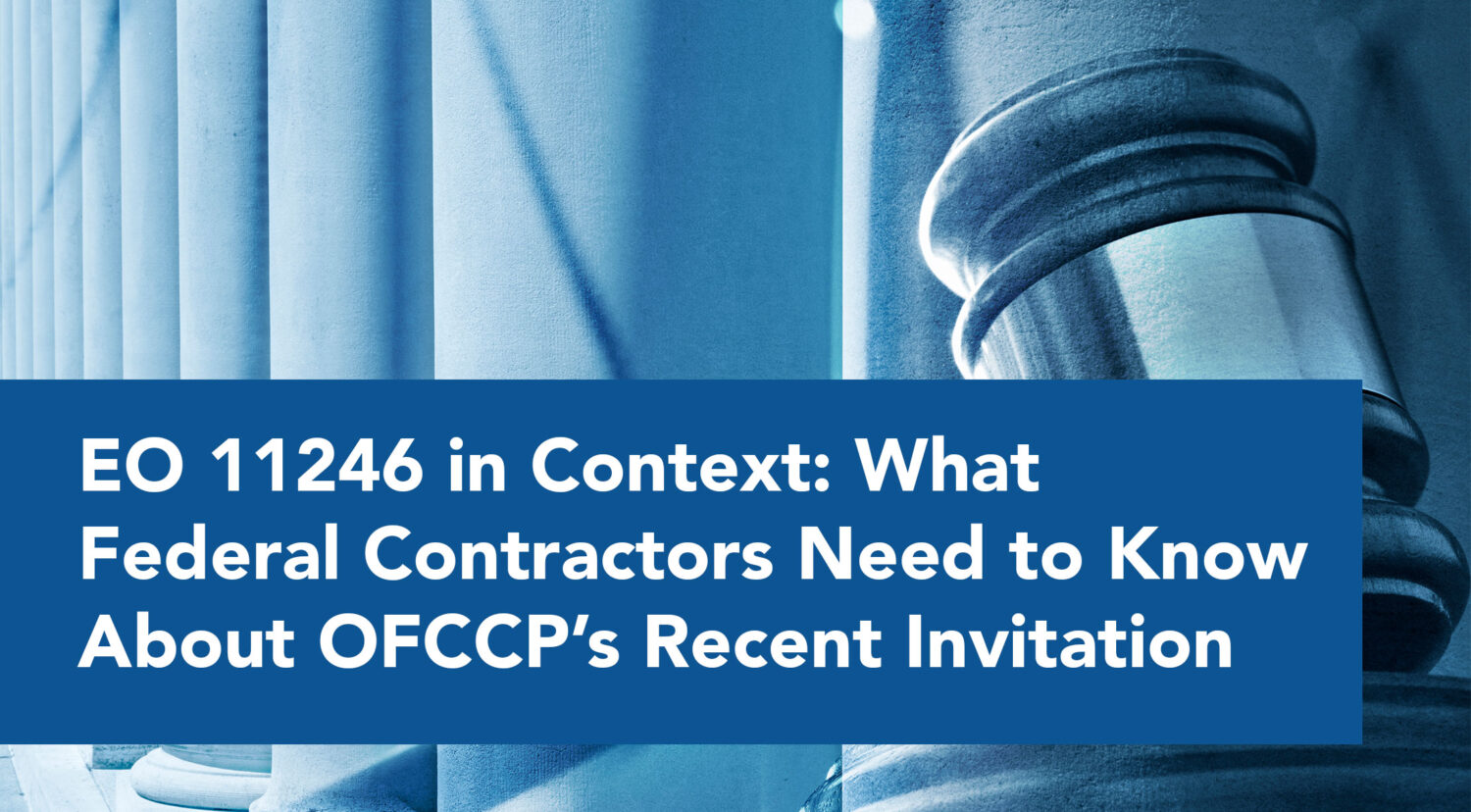

On November 25, the United States Department of Labor’s Office of Federal Contract Compliance Programs formally announced it would not be using EEO-1 Component 2 pay data.
“OFCCP will not request, accept, or use Component 2 data, as it does not expect to find significant utility in the data given limited resources and its aggregated nature, but it will continue to receive EEO-1 Component 1 data,” the OFCCP wrote in its official federal register notice.
Compensation data was previously collected by the Equal Employment Opportunity Commission (EEOC) as part of the EEO-1 report filed by employers with 100 or more employees. The EEOC requires employers to file a range of data including the number of individuals employed, their distribution by legal entity and location, and their demographic characteristics.
In 2016, the EEO-1 form was revised to add employee compensation and hours worked sorted by job category, pay band, race, ethnicity, and gender. These revisions were part of efforts by former president Barack Obama’s administration to better monitor pay gaps by gender and race. However, on September 11, 2019, the EEOC announced it would not seek approval to continue collecting the data.
“OFCCP has reviewed the parameters of the EEO-1 Component 2 data collection and has determined that it does not find Component 2 data necessary to accomplish its mission to ensure federal contractors are not engaged in unlawful pay discrimination,” the agency writes. “This data is collected in a format that is highly aggregated. Although the data could potentially inform OFCCP’s scheduling process for compliance evaluations, it is too broad to provide much utility to OFCCP.”
In the federal register notice, the OFCCP asserts that they are able to monitor pay discrimination through compliance evaluations. The agency regularly conducts evaluations to ensure contractors are compliant with Executive Order 11246 which prohibits discrimination in employment based on race, color, religion, sex, sexual orientation, gender identity, or national origin. It also requires affirmative action to ensure that equal opportunity is provided in all aspects of employment.
“The data is not collected at a level of detail that would enable OFCCP to make comparisons among similarly situated employees as required by the Title VII standards that OFCCP applies in administering and enforcing Executive Order 11246,” the agency writes. “OFCCP receives up-to-date, employee level pay data from contractors that are selected for compliance evaluations. This data enables OFCCP to identify disparities in pay that may violate Executive Order 11246 by comparing the pay of employees who are similarly situated under the contractors’ pay practices. Therefore, OFCCP does not need the EEO-1 Component 2 pay data for that purpose.”
The OFCCP says that analyzing EEO-1 Component 2 pay data would put an unnecessary financial burden on the agency. However, it will continue to receive EEO-1 Component 1 data filed by covered contractors and subcontractors through the Joint Reporting Committee in order to review their compliance with Executive Order 11246.
“The agency’s limited resources do not support the enhanced scope of review of employer practices or provide the human capital and technical capacity that would be required to make use of the data,” the agency writes. “Given the limited utility of the data for OFCCP’s purposes within the constraints of OFCCP’s available resources, OFCCP will not request or accept EEO-1 Component 2 data.”





